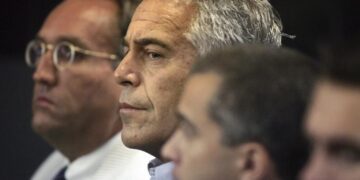Fracking has produced an economic and foreign policy revolution. Noah Rothman writes:
If the shale boom allowed America to pursue a harder line against Iran, it also freed policymakers in Washington to move closer to its natural ally in the region: Israel. A reduced dependence on foreign oil producers “allowed the president to make foreign-policy decisions that simply were not available to previous presidents, at least not in my lifetime,” Deputy Energy Secretary Dan Brouillette told the Financial Times in March. The Trump administration has tested that proposition, moving the U.S. Embassy to Jerusalem and recognizing Israel’s sovereignty over the Golan Heights—maneuvers that foreign-policy observers were once certain would prompt a revolt across the Muslim world. The “Arab Street” suddenly had more pressing concerns closer to home to worry about.
A region-wide Sunni–Shia conflict had been brewing for some time, pitting states such as Egypt, the United Arab Emirates, and Saudi Arabia against Iran and its proxies. This covert conflict has recently taken on a more conventional flavor, culminating in September 2019 in a sophisticated Iran-linked attack on a Saudi oil-processing plant. That was the climax of a series of Iran-backed attacks on the global energy-supply chain, which included multiple strikes on foreign-flagged oil tankers in the critical Strait of Hormuz. In a time before fracking, such brazen assaults on the global economic order would have been nothing less than casus belli demanding an international military response. Instead, the strike that crippled the world’s largest petroleum-processing facility drove global energy prices up to a meager four-month high. Within days, Riyadh had restored 50 percent of the lost production capacity, and it had returned to full pre-attack levels of oil output by the end of the month.
Why did this destabilizing assault on Saudi sovereignty and the global oil market fizzle? The answer: the United States, which now possesses the capacity to calm roiling panics in the event of an oil shock. When Iran struck, the Trump administration immediately announced it would release an unspecified amount of strategic reserves. That, combined with a Saudi pledge to bring additional offshore capacity online, stabilized the market and prevented Iran from starting what might have been a major war.
[Noah Rothman, "The Fracking Decade," Commentary, December]







